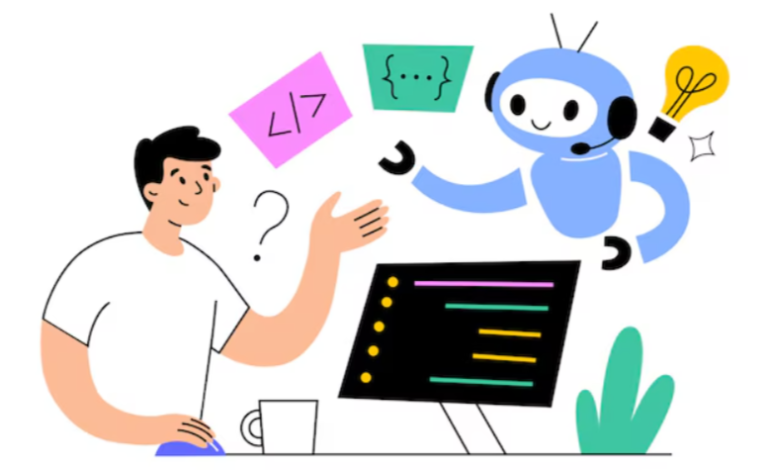Artificial intelligence is making it increasingly simple for non-developers to create apps, fueling a practice known as “vibe coding,” the Wall Street Journal reports.
Initially popular among coding amateurs, this technique—using AI tools to generate code from natural-language prompts—is now making its way into professional settings, reshaping how businesses approach software development.
According to market research firm Gartner, nearly 40% of all new business software will be developed through AI-assisted coding within the next three years. This reflects a growing reliance on AI to expedite the software creation process, allowing companies to quickly transform ideas into functioning applications.
Since the introduction of tools like ChatGPT, corporate use of AI-generated code has steadily grown. Industry giants such as Google and Microsoft already rely on AI for writing over 20% of their code. The rise of vibe coding further illustrates this trend, as professional engineers increasingly leverage AI-powered tools to accelerate innovation.
Lauren Wilkinson, Vanguard’s divisional CIO for financial adviser services, explained that vibe coding serves as a “creative partner” for developers, prompting new ideas engineers might not have initially considered. Using AI models such as OpenAI’s GPT and Anthropic’s Claude, Wilkinson’s team has significantly streamlined their workflow. She noted that the prototyping time for new webpages has decreased dramatically, from two weeks down to about 20 minutes, enhancing efficiency by roughly 40%.
“It’s not just transforming the engineering piece, it’s really transforming the whole process,” Wilkinson said.
However, she cautioned that despite its benefits, vibe coding does not eliminate the need for skilled engineers.
“The role of the engineer is still very, very critical to make sure that the boundaries and conditions are set up front for what the vibe coding is going to produce. It doesn’t excuse the engineer from needing to understand what’s going on behind the scenes.”
Brian Kirkland, CIO of Choice Hotels, shared a similar perspective, emphasizing that effective vibe coding requires integration with existing company systems. He described the method as a process of instructing AI clearly, reviewing its output, and correcting as needed.
Yet, some executives express concerns about the potential risks associated with AI-generated apps built by employees without technical expertise. Tariq Shaukat, CEO of coding company Sonar, highlighted privacy and security concerns, noting:
“I’ve got CIOs who are afraid of an app being constructed by an HR person that’s bypassing security reviews and is going to end up with a privacy issue.”
Many companies, he added, are establishing new governance frameworks to manage this emerging technology responsibly.
As vibe coding spreads, CIOs predict significant shifts in software engineers’ roles. Jude Schramm, CIO of Fifth Third Bank, believes his organization’s engineers could transition entirely to vibe coding within the next few years, shifting their focus toward broader business problem-solving rather than traditional code writing.
“Engineering of the future is going to be much more a world of test, quality assurance, and validation,” Schramm said. “That’s what we’re trying to train our folks for.”










The latest news in your social feeds
Subscribe to our social media platforms to stay tuned